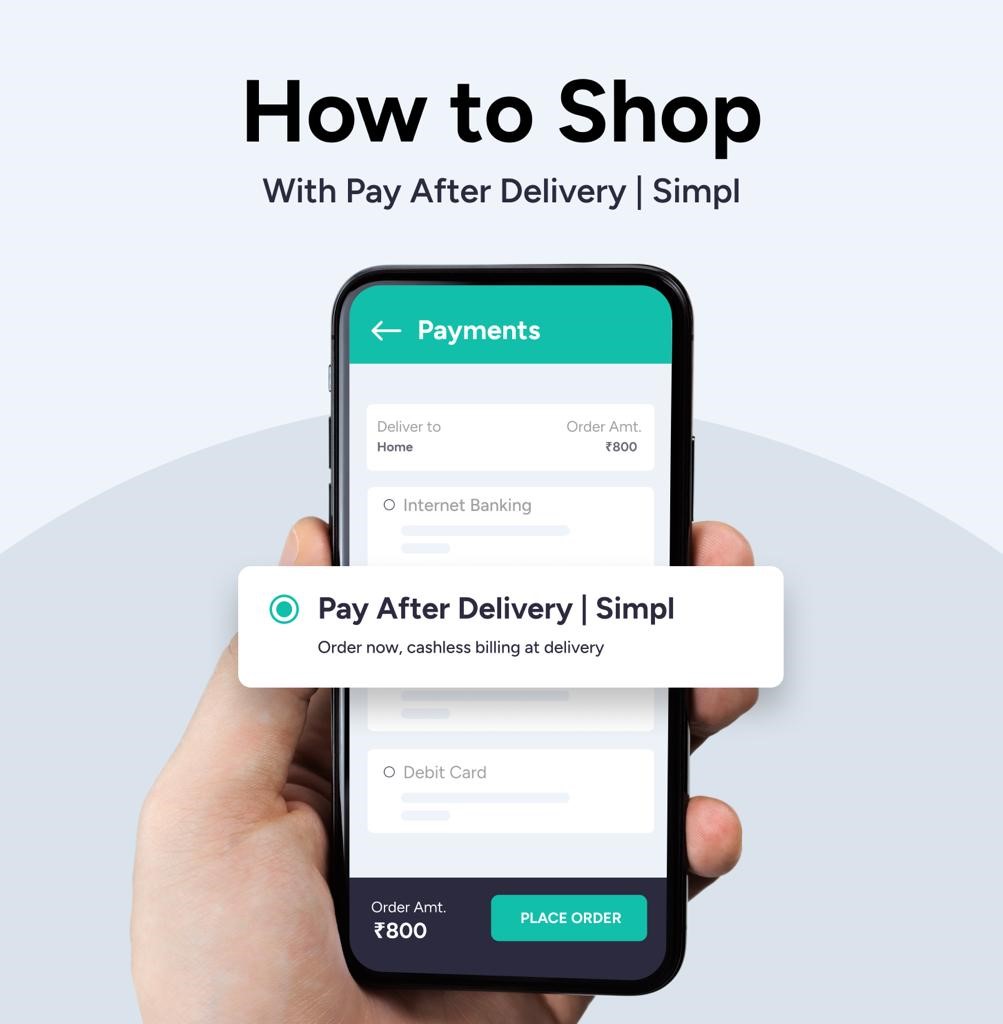Helps reduce Cash on Delivery orders and returns for merchants by enabling payment to be deducted only after the successful delivery of a shipment
Bengaluru, NFAPost: Simpl, India’s foremost Checkout Network, today announced the introduction of its innovative Checkout offering, Simpl Pay After Delivery (SPAD) to enhance trust and convenience for millions of customers across the country. With this capability, consumers can choose Simpl Pay After Delivery at the time of checkout which triggers payment only upon successful delivery of the shipment. This helps assuage consumers’ concerns of money getting blocked on account of an unsuccessful delivery, thereby helping them build trust in merchants and enhance user experience.
SPAD is built upon Simpl’s revolutionary 1-tap pay which offers near-zero transaction failures and helps reduce returns and Cash-on-Delivery (CoD) orders for merchants. It will help build trust for consumers by enabling a transaction after the delivery of the shipment, thereby emulating the same CoD process and bringing enhanced convenience. This will also not require any action from the customer at the time of delivery. With consumers opting for SPAD, it will play a pivotal role in reducing CoD orders for merchants which accounts for a majority of the orders placed and witnesses nearly a fifth of all returns, making it a major pain point for merchants. Currently, CoD accounts for nearly 60% of all online transactions in India mainly due to a lack of trust in merchants and this becomes significantly high for emerging merchants.
Simpl, which is the preferred partner for over 26,000 merchants and millions of users across the country, has emerged as a marker of trust over the last 8 years, helping merchants connect effectively with consumers. Simpl’s PAD is solving a major problem statement of the industry and has already been adopted by large enterprise and D2C merchants across fashion, pharma and electronics categories to offer an enhanced experience to their consumers. As more customers experience the convenience of SPAD, merchants are also expected to witness better customer loyalty and repeat purchases. SPAD is part of Simpl’s rapidly growing suite of artificial intelligence-led offerings catered to empower merchants and bring greater convenience to consumers across the country.
Commenting on the development, Puneet Singh, Chief Technology Officer at Simpl said, “As an ecosystem-focused organisation, we are committed to solving pain points for both ends of the spectrum – consumers and merchants alike. Simpl’s Pay After Delivery is built upon years of our experience in understanding their nuanced pain points and will help bring enhanced user experience, build trust and reduce Cash-on-Delivery for merchants, thereby bringing business efficiencies”.
In the evolving world of e-commerce, customer expectations are rising continually, and they are demanding a seamless experience across the value chain. Here, the checkout stage becomes important to innovatively bring quick and convenient payment offerings to millions of consumers while helping merchants streamline their operations and reduce costs incurred during the returns.
Simpl over the last several years has developed and strengthened its state-of-the-art artificial intelligence-powered technology platform which powers consumers’ checkout journey seamlessly and helps merchants improve their conversions while reducing returns and CoD. The company’s 1-tap pay and state-of-the-art Checkout Network have made a significant impact in the lives of consumers and merchants and SPAD is further expanding Simpl’s bouquet of offerings.
About Simpl
Simpl is India’s foremost Merchant First Checkout Network, making payments invisible and money intelligent. Simpl is on a mission to empower merchants to build trusted relationships with customers, one transaction at a time. With more than 26,000 available merchants and millions of approved users pan-India, Simpl envisions creating a frictionless and inclusive digital payments experience for India that empowers and fosters trust between merchants and their customers.





